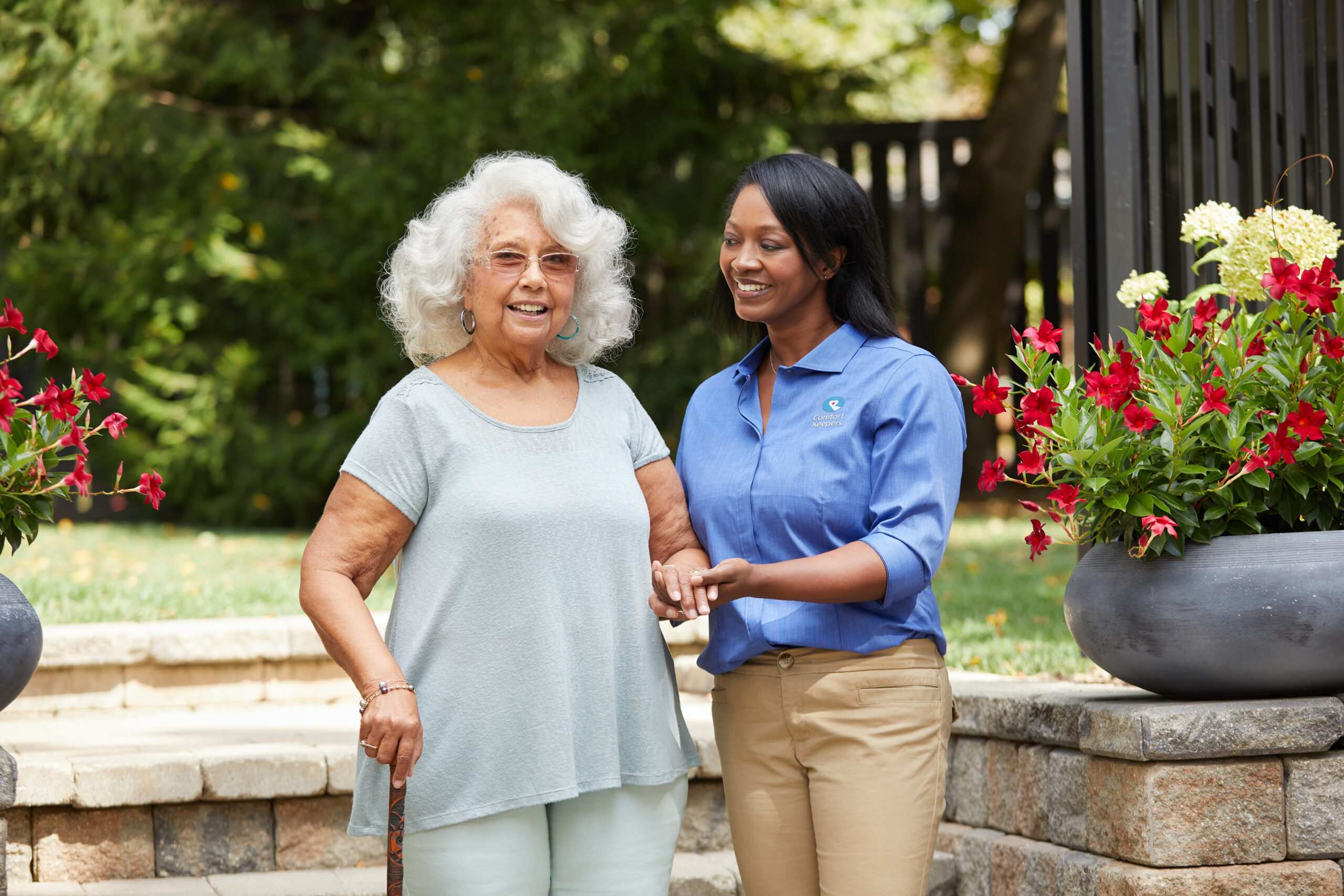Senior Home Care Tips for Older Adults with Alzheimer’s Disease
Home Care Blog | November 27, 2017

Tips for Seniors with Alzheimer’s Disease
Senior Home Care for Alzheimers | In honor of National Alzheimer’s Disease Awareness Month, Comfort Keepers of Calgary, AB recommends the following senior home care tips related to Alzheimer’s disease. Learn more about the common warning signs of this condition, as well as tips on how to have a conversation with your senior loved one about Alzheimer’s disease.
Alzheimer’s can make it difficult for seniors to continue living on their own. Senior home care can help older adults stay safe at home and give family caregivers the break they need. If you have noticed these signs of Alzheimer’s in your loved one it’s important to get them evaluated by a doctor to see if they might have Alzheimer’s.
Warning Signs of Alzheimer’s Disease
Memory Loss: The most common and noticeable warning sign of Alzheimer’s disease is memory loss. If your older loved one has trouble recalling names, faces, places, and even the purpose of everyday objects such as a hairbrush or a pair of scissors, there may be something very wrong.
Frequent Misplacement of Items: Although people misplace items all the time, those with Alzheimer’s disease place items in inappropriate places. For example, a senior may place a salt shaker in the bathroom. If you notice this with your older loved one, they may have Alzheimer’s disease.
Depression: Several of the most common symptoms of depression include social withdrawal, a lost interest in hobbies, and strange sleeping patterns. If your senior loved one used to be very social and no longer accepts invitations to spend time with friends and family, they may be depressed and displaying a sign of Alzheimer’s disease.
Poor Judgment: Since dementia has a major effect on reasoning, older adults with Alzheimer’s may demonstrate poor judgment. They may completely neglect personal hygiene, say things that make no sense, or make irrational financial decisions. Senior home care providers can help ensure your loved one gets support with personal care tasks, meal preparation, medication reminders and much more.
How to Speak to Your Aging Loved One Senior Home Care for Alzheimers
Bringing up the topic of Alzheimer’s disease to your older loved one can be very difficult. Regardless of whether you need to tell them that they need to move, stop driving, or opt for home care services, you are likely worried about how they will react. Here are some great tips to ensure the conversation goes as smoothly as possible:
Schedule a Family Meeting: It’s a good idea to schedule a family meeting with you, your loved one, and other family members and close friends. This way, there is a time and a place for the conversation and your senior is surrounded by people they love and trust.
Avoid Downplaying the Disease: As Alzheimer’s disease progresses, you should be open about the implications of the condition. For example, if they can no longer drive or manage their finances, let them know this and provide them with a solution.
Allow Your Older Adult to Express Their Feelings: Your senior will likely express feelings of frustration, anger, and disappointment during this conversation. When they do so, be sure to respond with reassurance and love.
Make Every Effort to Reassure Your Senior: Reassuring an older adult is important when speaking to them about Alzheimer’s disease. You should let them know that you will be there for them to provide support and do whatever is necessary to improve their quality of life.
Write Up Answers to Potential Questions: You should anticipate the types of questions your older loved one may ask prior to having the conversation. Once you do, write up simple, easy-to-understand answers to these questions so you’ll know how to respond when they are asked.
Comfort Keepers® Calgary Can Help with Senior Home Care for Alzheimers
If you are concerned about the safety of your aging loved ones, especially in regard to fire, we can help. While it’s important to rely on the expertise of licensed professionals for certain precautions, we can provide home safety assessments and ensure your loved ones’ environment is safe.
Contact the Comfort Keepers Calgary office to learn more about how we can help maintain safety, comfort, and happiness in the home.
Individualized Home Care Options
Long-Term Home Care, 24 Hour Home Care & Short Term Care Options Customized for You







